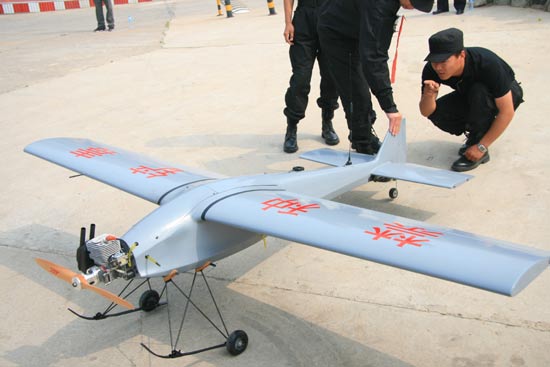Focus
Police use unmanned aircraft in anti-drug campaign
By Zhang Yan (China Daily)
Updated: 2010-06-09 07:43
 |
Large Medium Small |
Beijing police will use unmanned aircraft to conduct aerial inspections of the mountains around Beijing to detect opium poppy cultivation from June 10 to July 10, the anti-drug department of City Public Security Bureau said on Tuesday.
Ma Guoyun, office director of the anti-drug department, told METRO on Tuesday, that poppy growing had moved to Beijing due to the successful efforts made by Hebei province to restrict cultivation of the plant.
On June 3, Beijing police officially launched an one-month aerial anti-drug operation, during which an unmanned aircraft flew a total of 1,000 sq km over the mountains in the suburbs to detect the plants, Ma said.
"Compared with the normal police helicopter, which was limited by the weather and terrain conditions that imposed a high flying risk, the highly maneuverable unmanned aircraft can fly through the valley forests and canyons to perform the task," he said.
In addition, the daily expenses for use and maintenance were reduced by 70 percent, he added.
|
 The new aircraft will be able to fly close to the valley and its forests. WANG JING / CHINA DAILY |
The suburban areas comprise seven districts - Pinggu, Fangshan, Yanqing, Mentougou, Miyun, Huairou and Changping - serve as a habitat for poppy planting.
"Apart from the city suburbs, the police will pay special attention to the neighboring suburban areas bordering Hebei province, such as Chengde, Huailai and Chicheng counties to totally wipe out the poppy growing areas," Ma said.
The unmanned aircraft are two-meters long and wide, and look like large model aircraft. They can fly 200 km at an altitude of up to 6,000 m, he said.
The airplane and scanning are both remote controlled. Every 500 m, the plane will take a spectra photograph of an area covering 3 sq km.
"Using special software to analyze the spectra photos, the police will detect the land areas suspected of growing poppies," he said.
After ascertaining a location, the police can instantly send the helicopter with the relevant experts to investigate, Ma said.
There is not a single poppy area approved by the state government in the Beijing area, but the villagers illegally plant poppies for medicinal purposes and drugs.
In April, 2010, during the poppy planting season, the city and district level anti-drug, forestry departments and the police organized thousands of volunteers and forest protection guards to walk around the mountain villages to promote their anti-drug work and search for poppy growing areas.
On June 26, International Anti-drug Day, they will again enter the mountains to search for poppy cultivating sites.
They will also undertake anti-drug promotions and education in the city's universities.
"There are a total of 20,000 volunteers in the capital, who are playing a key role in taking anti-drug publicity and education to the citizens, who then will know, understand, prevent and refuse the drugs," Ma said.
From January to April 2010, Beijing police cracked 1,601 drug cases, and detained 2,138 suspects, seizing 50 kg of drugs.